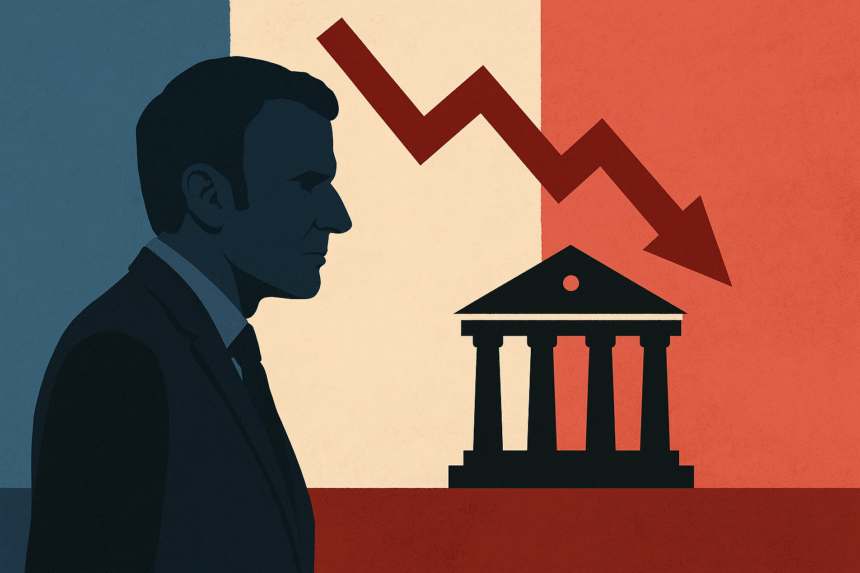French President Emmanuel Macron is confronting a deepening political crisis as his prime minister, François Bayrou, prepares to face a confidence vote that he is widely expected to lose. The standoff comes amid mounting pressure from markets alarmed by France’s fiscal challenges and political instability.
A Government on the Brink
Bayrou stunned lawmakers and investors earlier this week by calling for a confidence vote scheduled for September 8. The move was meant to strengthen parliamentary support for his deficit-reduction strategy, which includes €44bn in spending cuts and tax increases for the 2026 budget.
Macron has urged lawmakers to back Bayrou, but allies say he is already considering alternatives, including potential successors able to push through next year’s budget. The French president’s options, however, are limited: any new government would lack a clear parliamentary majority, leaving Macron to choose between continuity with a centrist or conservative figure, or shifting towards a moderate left-wing appointment.
Narrowing Options for Macron
Naming a centrist ally such as Defence Minister Sébastien Lecornu, a longtime Macron supporter, risks provoking the opposition. Turning to a Socialist, such as Olivier Faure or former prime minister Bernard Cazeneuve, could stabilize parliament but would mean revisiting Macron’s pro-business reforms. Conservative leaders, meanwhile, are reluctant to return to government after the brief and unpopular tenure of Michel Barnier, Macron’s first prime minister of this term.
Opinion polls suggest both Macron and Bayrou face widespread public discontent. An Elabe survey this week showed 67% of respondents wanted Macron to resign, while 72% opposed Bayrou staying in office. Far-right leader Marine Le Pen and far-left figure Jean-Luc Mélenchon have already called for Macron to step down to allow for an early presidential election — a demand Macron has firmly rejected.
Fiscal and Market Pressures
The political turmoil is complicating efforts to address France’s ballooning deficit, which stood at 5.8% of GDP in 2024, far above EU limits. Debt servicing costs are projected at €66bn this year, surpassing education and defence as the government’s largest budget item.
Markets have reacted nervously, with French bond yields rising and equities fluctuating after Bayrou’s announcement. Investors fear a prolonged stalemate could prevent France from adopting a budget for the second year in a row.
Looking Ahead
With opposition parties holding at least 330 of the National Assembly’s 577 seats, Bayrou’s survival depends on a major shift by rivals — an unlikely scenario. If his government falls, Macron may have no choice but to consider appointing a left-leaning premier or even dissolving parliament to call fresh elections, a risky move he has so far avoided.
As his second and final presidential term winds down before 2027, Macron faces narrowing options and the prospect that political instability could define the remainder of his presidency.








